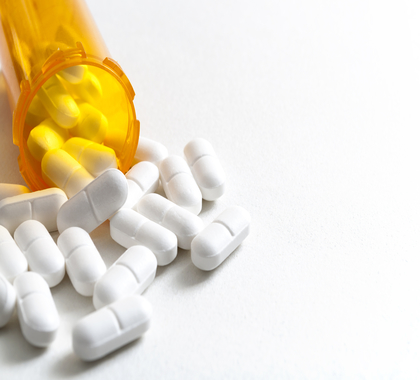The Florida House and Senate have approved H.B. 19, which would authorize the creation of two programs. One would import drugs from Canada and would focus on the purchase of drugs for state-run programs such as the prison system and Medicaid. The other, with a focus on the consumer market, would operate under the Department of Business and Professional Regulation and import drugs not just from Canada but other countries. The plans are meeting stiff resistance from the drug industry, taxpayer and conservative groups.
Gov. Ron DeSantis strongly supports the bill, which at this writing now is on his desk, but even if he accepts the bills, the federal government must approve any drug importation program, and it has yet to give the go-ahead to similar programs in other states.
The proposed Florida programs would include the purchase of all prescription drugs except controlled substances, biological products, injectable drugs, and drugs inhaled during surgery.
Prices of prescription drugs in Canada and countries can be cheaper because their governments control the prices. It is not clear whether Canada is willing or would have enough drugs or the right kind of drugs to supply Florida.
Reduced Availability
Although legislators are attracted to Canada’s lower drug prices, prescription drugs in other countries cost less because the governments force the prices down, which would reduce access if tried here, says Ed Hudgins, research director at The Heartland Institute, which publishes Health Care News.
“Prices in other countries are usually determined or manipulated by governments,” said Hudgins. “They are not market prices.”
These below-market prices decrease people’s access to drugs, says Hudgins.
“As artificially low-priced drugs come into the U.S. market, American drug developers will find it more difficult to recover their investments,” Hudgins said. “Importation undermines the incentive to innovate.”
Other problems arise from the complexities of the U.S drug market caused by government policies.
“There are patent protection issues involved,” said Hudgins. ” Also, importation does not get to the root causes of high or really distorted prices in the United States, most notably the spaghetti-tangle of U.S. government pricing regulations, such as through Medicare, insurance regulations that leave out consumer choice, and the high price of drug certification because of antiquated FDA certification regulations.”
Safety Questions
Importing drugs from a foreign country raises questions about safety and oversight, says Merrill Matthews, a resident scholar with the Institute for Policy Innovation.
“The FDA is, by law, charged with ensuring the safety of drugs in the United States,” said Matthews. “There has been a law on the books for years that if the FDA commissioner could certify that importation was safe, then it would be allowed. No FDA commissioner, Republican or Democrat, has been willing to do that.”
Matthews says allowing importation of drugs carries big political risks.
“That sense of let-the buyer-beware would be quickly abandoned if there were widespread injuries due to an outbreak of fake or compromised drugs,” Matthews said. ‘From a political standpoint, it is foolish to push importation. If deaths occur, the politician who promoted it will take the blame.”
Matthews says it might not be realistic for states to provide their own safety inspections.
“State-mandated inspections might help, if citizens could depend on the state to do the job thoroughly,” Matthews said. “But they can’t. The FDA is overwhelmed, and the states would soon be also. The tendency would be to provide limited funding for inspections and claim that the state has addressed the issue when it hasn’t.”
Failed Tests
Several states and cities have set up drug importation programs over the past 15 years, but Matthews says they have failed to gain traction. “Several states and cities have set up importation programs over the past 15 years or so and they have failed for lack of use,” Matthews said.
“State-sponsored importation schemes are all about politics and not about medical necessity,” Matthews said.
There is also the concern of an expanding black market for prescription drugs as cheaper drugs are brought into the country.
“A black market for drugs already exists, though it is mostly focused on opioids and similar substances,” said Matthews. “What importation does is provide a veneer of legitimacy to the notion that people can buy drugs located in another country, often claiming to be in Canada, and it’s perfectly safe.
“In other words, it makes the existing black market appear to be safer than it is,” Matthews said.
Rocco Cimino([email protected])writes from Washington, D.C.




